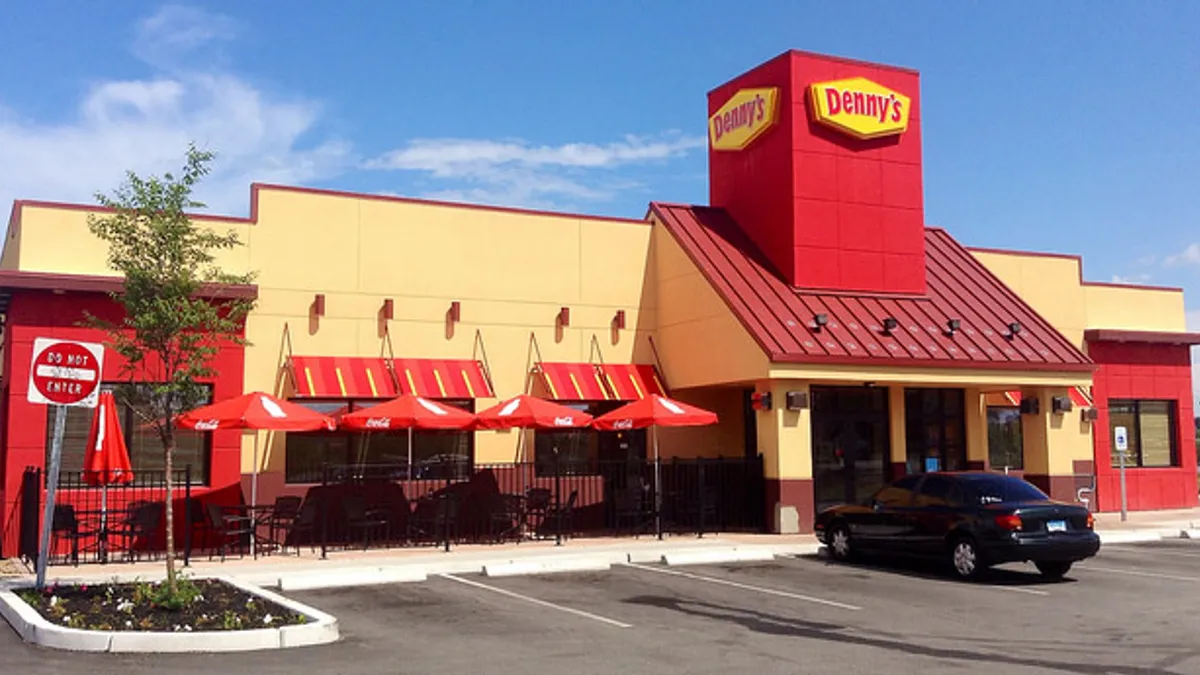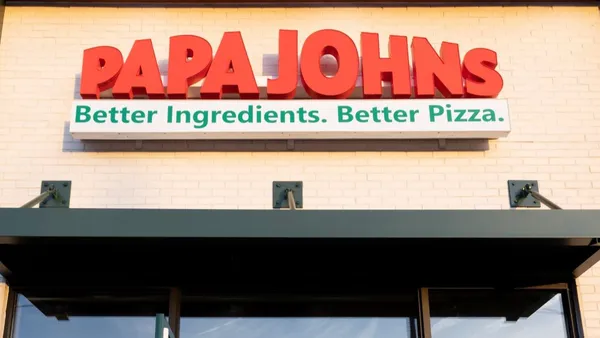Dive Brief:
- Denny's shares spiked more than 25% Wednesday following the casual dining chain's announcement that it plans to sell between 90 and 125 company-owned stores, according to CNBC. If these sales go through, the restaurant's total franchised locations would make up 95% to 97% of its store system, chief financial officer Mark Wolfinger said on an earnings call Tuesday.
- At present, about 89% of Denny's stores are owned by franchisees.
- The chain predicts it will rake in close to $30 million by selling up to 30% of the 95 restaurants it owns. This cash infusion would help the company buy higher-quality real estate, according to Wolfinger.
Dive Insight:
Denny's aggressive refranchising efforts follow a period of lackluster performance, with the restaurant chain reporting same-store sales growth of just 1% year over year in its third quarter earnings. The move will pare down its footprint of corporate-owned stores from 21 states to eight states.
"Our refranchising and development strategy will enable us to further evolve as a franchisor of choice that provides more focused support services, all while yielding a higher quality, more asset-light business model," CEO John Miller said in a statement.
Moving toward a nearly entire franchisee-owned restaurant system, combined with the potential sale of low-volume restaurants, could give Denny's the agility to make competitive improvements to its business model. The chain has already begun looking beyond its physical formats for growth by investing in its Denny's On Demand app and website.
These efforts have boosted off-premise sales, which represent about 10% of transactions at franchised restaurants and 10.5% at company-owned locations — an upward trend Miller expects to drive long-term growth as stores "expand their delivery channels." About 70% of the casual dining company's U.S. restaurants offer delivery through at least one third-party service.
And while these potential benefits and Wall Street's renewed confidence in the brand could accelerate growth, this refranchising effort is also being made under the shadow of Jack in the Box's and McDonald's power struggles with their franchisees. Jack in the Box franchisees, for example, make up about 84% of the company's restaurant system — smaller than Denny's proposed franchisee ratio — and has pushed CEO Lenny Comma to resign. They have also demanded a seat on the company's board of investors and this week asked for a "solutions-focused meeting" to address dwindling transactions.
Frustrated McDonald's operators have also made waves and are considering forming an independent association to put pressure on corporate following a wave of expensive store remodels and tech innovations that haven't improved sales performance.
And while the fact that the majority of both chains' stores are franchised isn't the root of their problems, this balance of power certainly isn't helping their struggles. Denny's would be wise to view both of these situations as cautionary tales, especially as it pushes forward with its "Heritage" design model across its footprint. Much of Jack in the Box's problems have reportedly stemmed from the company's lack of communication and transparency with aggrieved franchisees — a lesson to Denny's and restaurant operators across the spectrum to keep lines of communication open as they undertake new growth strategies.














